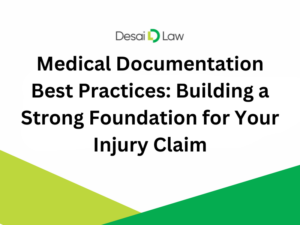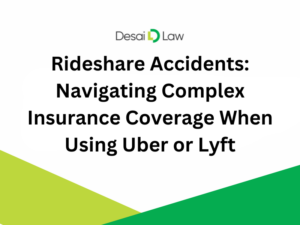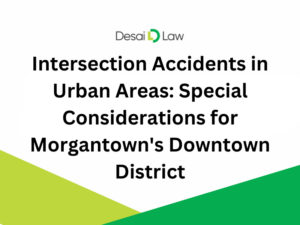An unqualified truck driver either does not have a valid commercial driver’s license (CDL) or does not meet other regulations outlined by the Federal Motor Carrier Safety Administration (FMCSA). FMCSA regulations govern commercial truck driver activity in the United States.
However, some drivers and employers may ignore the law when they think they can get away with doing so. These regulations include hours-of-service regulations, criminal background checks, and medical checks, among other requirements that truck drivers must meet. In some cases, the employer can also share liability for damages if an unqualified driver causes an accident.
CDL Requirements and Other Rules
For drivers to obtain a valid CDL, they must first have proof of insurance, present a valid social security card, and undergo a driving record check and screening by the Transportation Security Administration (TSA). If the driver meets all of these requirements, he or she can take the physical exam, complete all required coursework, and take the road tests to qualify as a truck driver.
Disqualifications
Drivers might become unqualified after obtaining their CDLs, after driving for many years, or after driving for a few days. If the driver’s driving record does not reflect safe driving, the driver committed a crime, or the driver fails vision requirements, his or her employer should deem the driver unqualified.
Sometimes, employers hire unqualified truck drivers. A driver who has gone through a truck driving school but failed written tests, does not know how to inspect a truck, or has failed truck inspections given by the U.S. Department of Transportation does not meet the requirements to work as a commercial truck driver.
How an Employer Might Bear Liability After an Accident
An employer can share in the responsibility for a driver’s truck accident from:
- Failing to properly train a driver or ensure that an experienced driver has had proper training, including defensive driving skills;
- Failing to screen the driver, including conducting thorough background checks;
- Providing the driver with malfunctioning trucks that pose a danger to other drivers; and
- Encouraging the driver to break the rules and regulations, such as driving over and above what the hours-of-service regulations allow.
Types of Accidents an Unqualified Driver Might Cause
An unqualified driver, or a driver with little to no hands-on experience and training, could cause any number of accidents. Because of a truck’s large size and heavy weight—even when empty—those driving passenger vehicles or motorcycles that collide with a truck often suffer catastrophic injuries.
Types of truck driving accidents caused by unqualified drivers include:
- Jackknife wrecks, which often result from a driver’s inability to brake properly. The trailer starts sliding to the side and ends up with the rear of the trailer next to the cab.
- Rear-end collisions often happen when an unqualified driver underestimates the time it takes the truck to stop. In some cases, ice, snow, or rain could cause a driver to slide into the rear of another vehicle. The weight of a loaded truck could cause the truck to push several passenger vehicles into a massive pileup, depending on the speed.
- Head-on crashes often happen when drivers feel tired or drive while under the influence of drugs or alcohol.
- Rollover accidents usually happen when the wind proves too strong, such as when a surprise tornado pops up. Rollovers can also happen if a truck driver takes a corner, such as a highway ramp, too quickly. If the truck travels too fast for the corner, it can easily roll over and cause a serious accident.
Truck Accident Injuries
In addition to the minor injuries often seen in car accidents, those involved in truck accidents often suffer from catastrophic injuries. A tractor-trailer can weigh up to 80,000 pounds; that’s a lot of weight compared to the 3,000 to 9,000 pounds of passenger vehicles. Even a tractor with no trailer weighs considerably more than a passenger vehicle—even a full-size pickup truck.
Thus, injuries sustained in truck accidents often prove catastrophic and could include:
- Internal injuries
- Traumatic brain injuries, including concussions and penetrating brain injuries
- Face and eye injuries
- Head, neck, and shoulder injuries
- Spinal cord and back injuries
- Simple and compound fractures
- Crushed bones
- Pulled muscles, torn muscles, strains, sprains, and other severe soft tissue injuries
Recovering Damages After a Truck Accident
If you suffered injuries or lost a loved one in a truck accident, you can recover compensatory damages. If you can prove the driver’s or the employer’s gross negligence caused the accident, you might recover punitive damages. Courts order compensatory damages in an attempt to make injured individuals whole again, but courts order punitive damages as a punishment for a defendant’s grossly negligent or intentional behavior.
Economic Damages
Sometimes called special damages, economic damages have a monetary value and may include:
- Medical expenses, including those incurred after a settlement or a trial award if doctors expect your injuries to result in long-term or permanent disabilities.
- Lost wages.
- The loss of future earning capacity if doctors expect that your long-term or permanent disabilities will not allow you to work. If you can work at partial capacity, you could also recover a partial loss of earning capacity.
- Replacement or repair of destroyed or damaged personal property.
- Funeral, burial, and/or cremation expenses.
Non-Economic Damages
Sometimes called general damages, non-economic damages do not have a monetary value. You cannot put a price on someone’s pain and suffering.
Non-economic damages include:
- Pain and suffering, including emotional distress.
- Loss of quality of life.
- Loss of companionship and/or consortium.
- Loss of use of a body part or body function.
- Amputation of a digit or a limb.
- Inconvenience if you have to hire someone to do the chores you usually do, such as grocery shopping, home repair and maintenance, house cleaning, and lawn maintenance.
- Extra compensation for excessive scarring and/or disfigurement.
If you suffered injuries or lost a loved one in a truck accident because of an unqualified driver, contact an experienced truck accident attorney for a free case evaluation.





